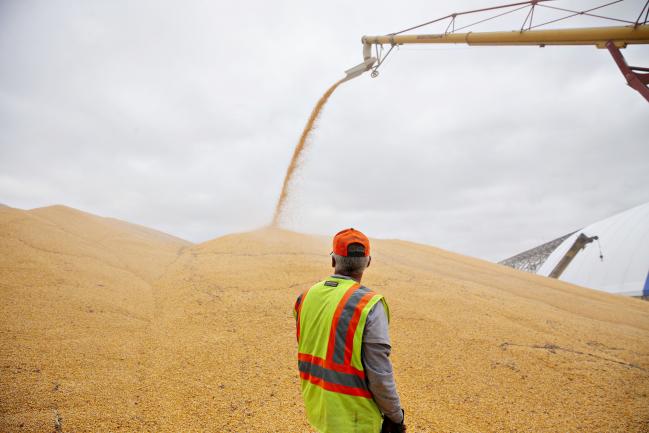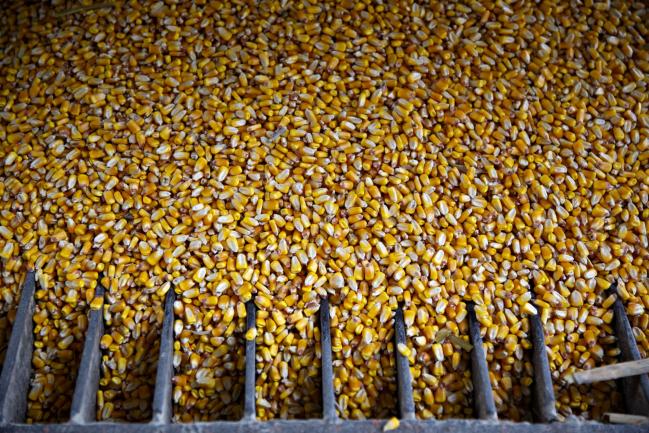(Bloomberg) -- President Donald Trump’s trade war with China is set to prompt a shift in the U.S. farm industry as growers switch to other crops.
Farmers probably will plant more corn for next year’s harvest at the expense of soybeans, Tim Brusnahan, vice president of consulting at Brock Associates, said Thursday at an investor meeting for poultry producer Sanderson Farms Inc.. That’s because top soybean importer China has stopped buying the oilseed from the U.S. at a time when growers are gathering a bumper crop.
"Next year, we are probably going to see less soybeans and more corn because we have such a large carryover," Brusnahan said. "We are at a point with trade negotiations with China, we don’t know when that’s going to end, we don’t know how long that’s going to take. It may take a while, so farmers will figure out what their best cropping opportunities are next year."
Soybean futures traded in Chicago have already fallen to a decade low as the trade spat drags on. To make matters worse, some U.S. growers are having to sell to local elevators at a large discount to futures, the so-called basis.
These Charts Show How Soy Farmers Are Paying the Trade-War Bill
Stockpiles are expected to be so big that farmers don’t have a place to store them. Illinois is in the worst situation, lacking storage for about 100 million bushels of crops, according to Brusnahan. The state has more soybeans than Alabama, Arkansas, Georgia, Kentucky, Louisiana, Mississippi, North and South Carolina, Tennessee and Virginia combined, he said.
"The basis is so bad in so many areas of the upper Midwest for soybeans, those farmers will figure out something else to plant," he said.
Terminals in Portland aren’t even quoting prices for soybeans due to the lack of demand, according to Brock Associates. In the Dakotas, growers will have the opportunity to switch not only to corn but also to spring and winter wheat.
Many farmers missed the opportunity to sell their corn and soybeans when prices were higher earlier this year, Brusnahan said, citing a 12-week period when soy was fetching about $10 a bushel.
Given the supply and demand situation, Sanderson Farms Chief Executive Officer Joe Sanderson sees corn in the $3.50-range is "a good place to be" while soy meal is “way overpriced” given the backdrop of the trade war with China.
On Thursday, December corn futures settled at $3.6925 a bushel in Chicago, while soy meal closed at $316.80 for 2,000 pounds and November soybeans at $8.5825 a bushel.

